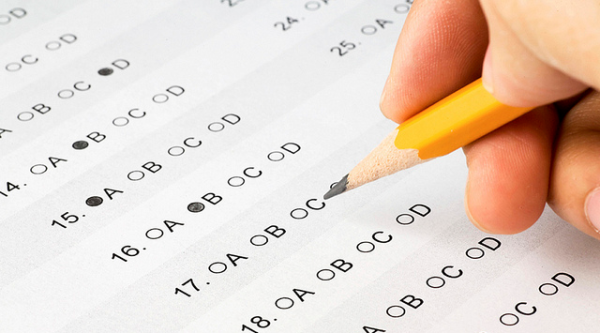
There has been a growing demand over the past decade for accountability in public education. Policy makers, students, families, and taxpayers all want teachers to be “held accountable.”
Conventional accountability in teaching is based on student achievement on standardized tests and graduation rates. A current bill, HB 4625, is being considered in the Michigan House of Representatives and proposes that teacher accountability be based primarily on student growth measured by assessments, more commonly known as standardized tests.
Legislation such HB 4625 suggests that accountability in the teaching profession is merely an objective matter. However, teaching is complex work and it has subjective elements that must also be considered for accountability.
The rhetoric accompanying legislation such as HB 4625 suggests that objectivity in accountability would incentivize teachers to focus on results, reward our best teachers, and make the profession more attractive to prospective talent. However, there is a problem with this: attempting to evaluate complex work with simple quantitative measures often yields inaccurate results and adverse outcomes. We have seen in recent years how too heavy a reliance on objective measures of accountability can lead to distortion of goals by teachers and schools, misguided decision-making, and even corruption within education systems. While these adverse outcomes are predicated upon the actions of educators, the ultimate antecedent is oversimplified accountability.
Although teachers have the greatest in-school impact on student achievement, external factors have an even greater influence. For example, a teacher could be using the most research-proven, effective instructional methods in their classroom, but truancy, poverty, neglect or abuse could still inhibit their students from fully focusing on their learning. The resulting achievement outcomes might suggest ineffective teaching.
Conversely, teaching quality can look highly effective even in the absence of solid instruction. Teachers might not be using effective methods, but students could be receiving extensive outside-of-class tutoring and/or leveraging online learning resources, and simplified achievement measures would suggest the teacher exceeded their professional responsibilities.
In other words, without considering broader subjective indicators of instructional quality and service, along with student achievement, it is difficult to accurately measure performance of teachers.
Ultimately, there should be accountability for the teaching profession based on student learning, but one-dimensional approaches are inadequate. After all, teaching is complex, multi-faceted work, and not easily summarized by simple quantitative measures. Combining multiple measures — qualitative and quantitative — such as effective instructional practices and external factors like poverty, along student achievement, would yield a more sophisticated accountability model. This type of approach would more accurately reflect the complex work of teaching, provide better feedback to teachers, and in the end, promote high levels of learning for all students.
Gary Abud, Jr. is the Michigan 2013-2014 Teacher of the Year.
[CC photo by albertogp123 | Flickr]



